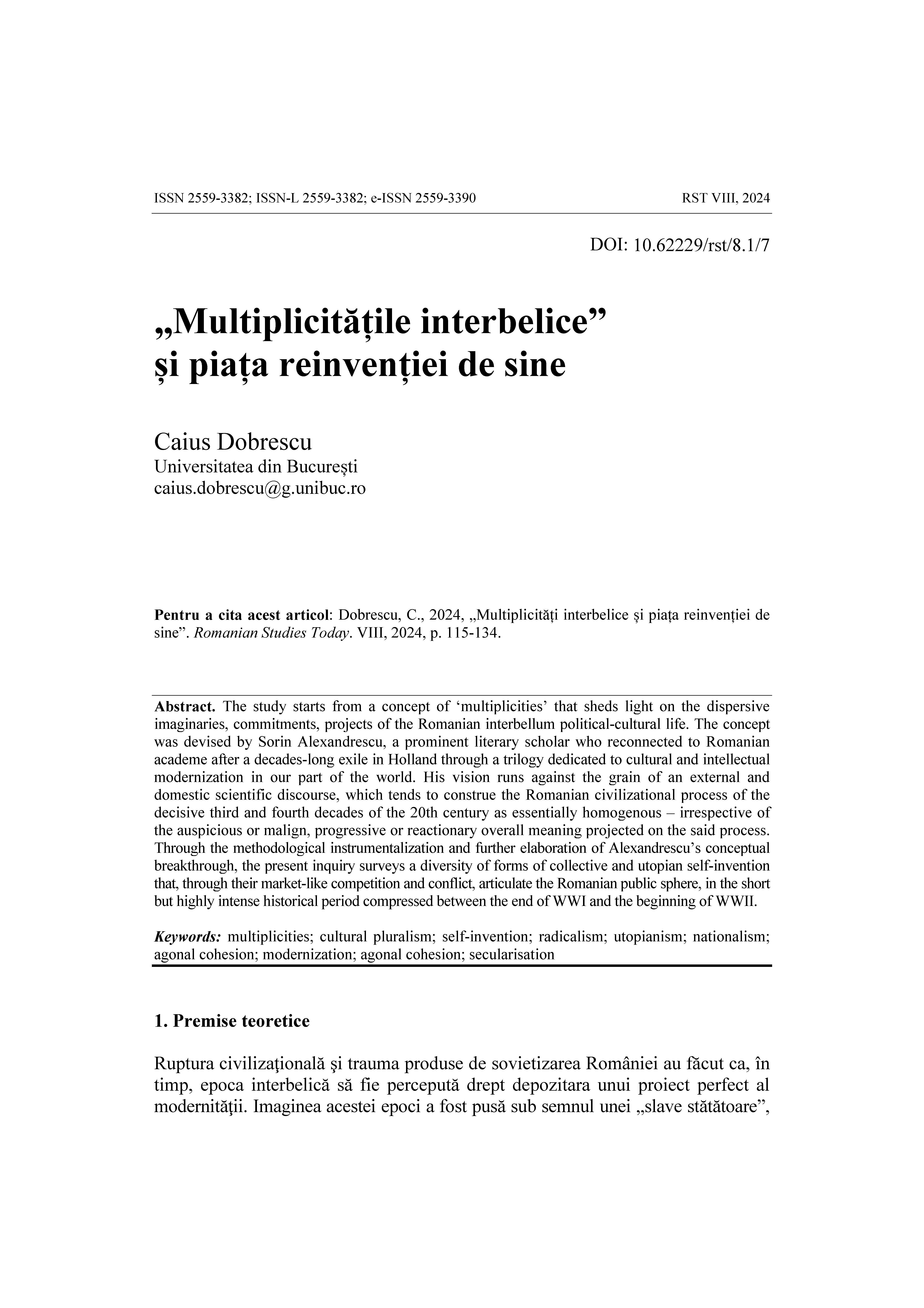„Multiplicitățile interbelice” și piața reinvenției de sine
DOI:
https://doi.org/10.62229/rst/8.1/7Keywords:
multiplicities, cultural pluralism, self-invention, radicalism, utopianism, nationalism, agonal cohesion, modernization, secularisationAbstract
The study starts from a concept of ‘multiplicities’ that sheds light on the dispersive imaginaries, commitments, projects of the Romanian interbellum political-cultural life. The concept was devised by Sorin Alexandrescu, a prominent literary scholar who reconnected to Romanian academe after a decades-long exile in Holland through a trilogy dedicated to cultural and intellectual
modernization in our part of the world. His vision runs against the grain of an external and domestic scientific discourse, which tends to construe the Romanian civilizational process of the decisive third and fourth decades of the 20th century as essentially homogenous – irrespective of the auspicious or malign, progressive or reactionary overall meaning projected on the said process.
Through the methodological instrumentalization and further elaboration of Alexandrescu’s conceptual breakthrough, the present inquiry surveys a diversity of forms of collective and utopian self-invention that, through their market-like competition and conflict, articulate the Romanian public sphere, in the short but highly intense historical period compressed between the end of WWI and the beginning of WWII.





